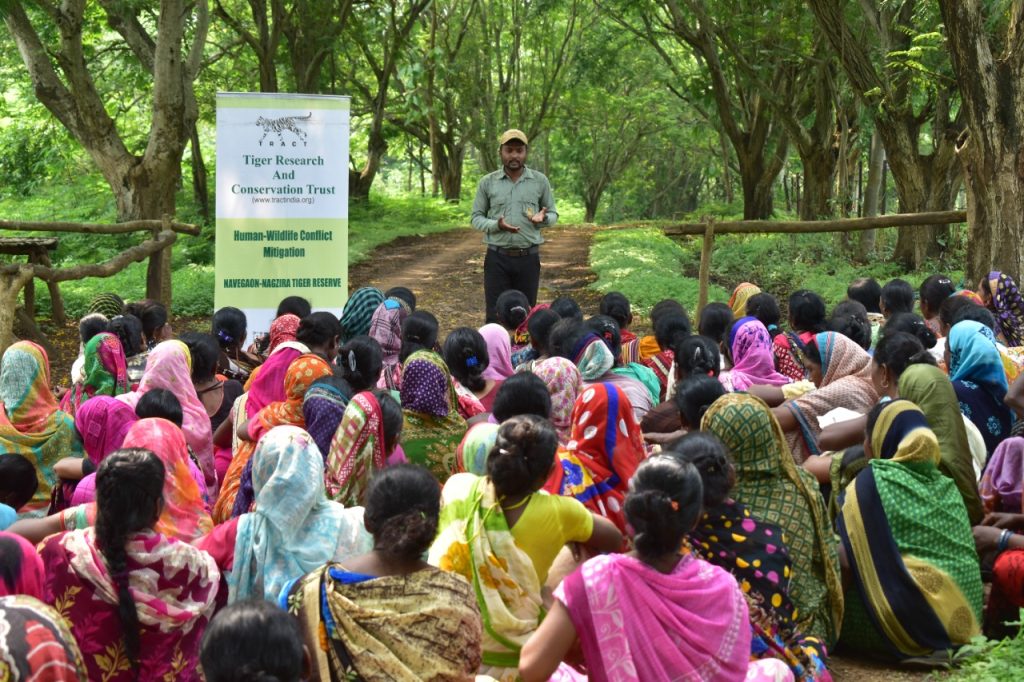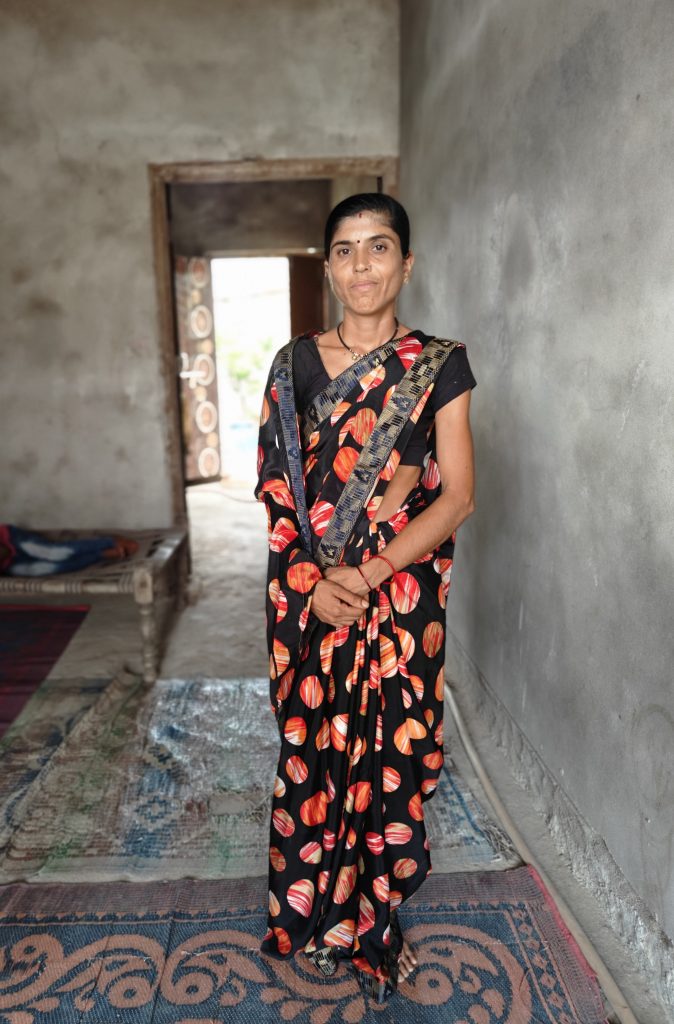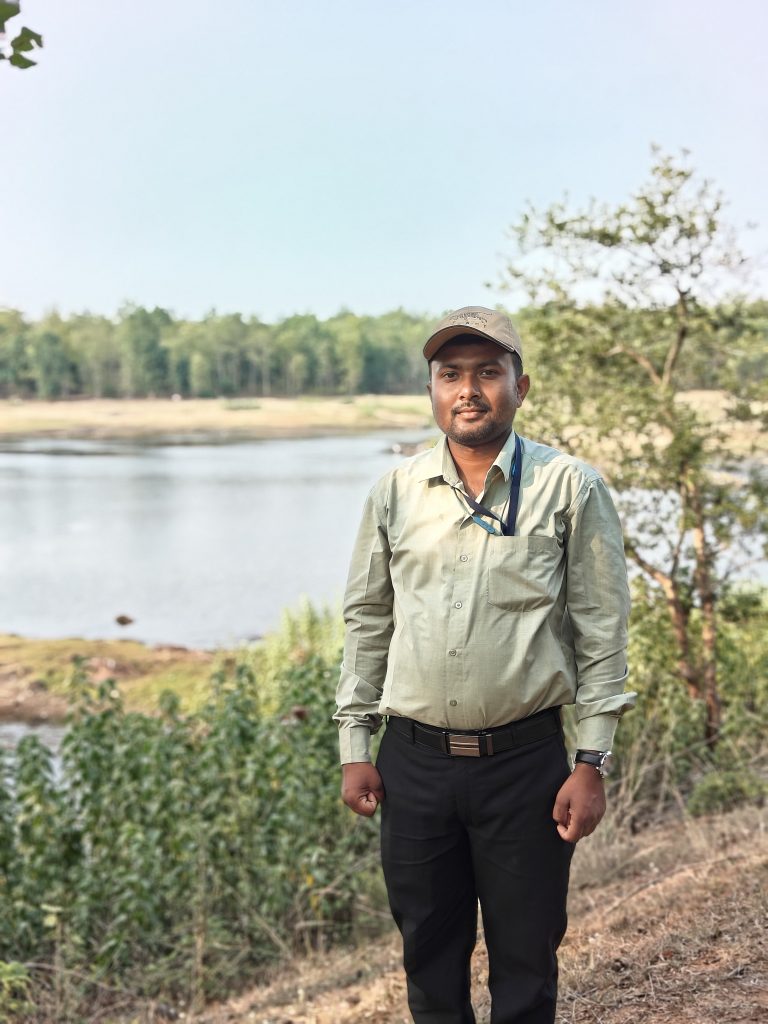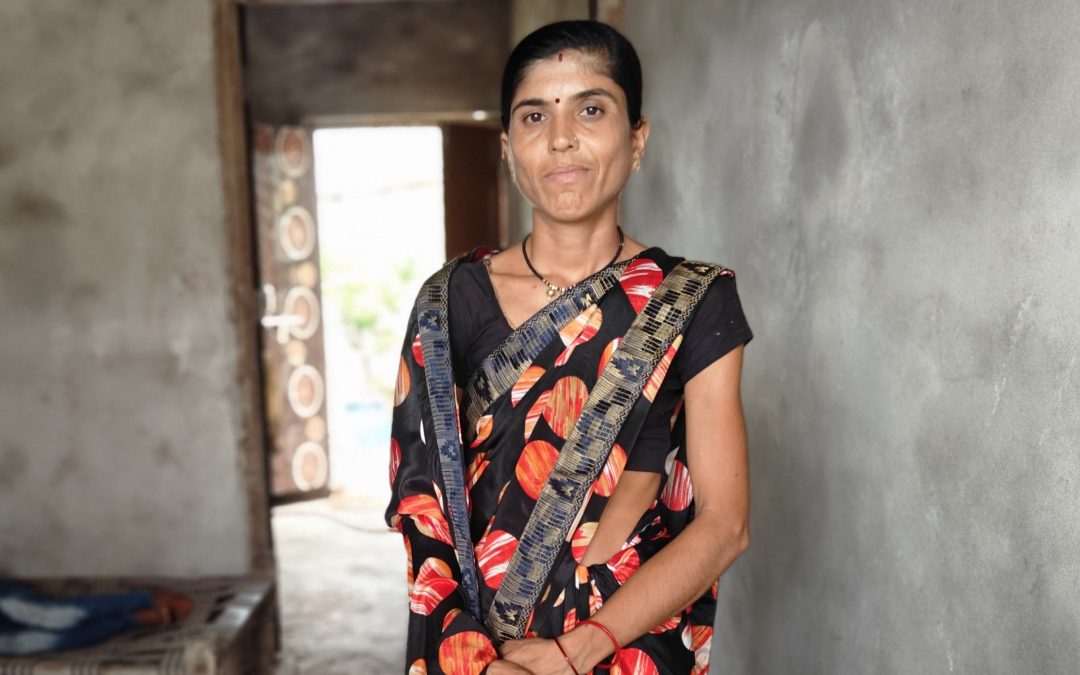Background of Nawegaon-Nagzira Tiger Reserve and TRACT’s work in the landscape
Supported by the Born Free Foundation UK, SLTP partner Tiger Research and Conservation Trust (TRACT) has been working in the Nawegaon-Nagzhira Tiger Reserve (NNTR) of Maharashtra to facilitate a peaceful co-existence of humans and large carnivores by creating awareness among the local communities and by securing the forest habitat and the water sources.
The two blocks of this tiger reserve are separated by forest and non-forest areas supporting many villages. This buffer forest has a large human population, domestic livestock and is also home to an array of wild animals, particularly leopards, sloth bears, wolves and wild boars. With the dispersal of wild animals into this buffer from the core, people and large carnivores share natural resources and co-existence is essential.
This makes TRACT’s awareness programmes crucial. Through these, information is disseminated about the reasons for conflict with wild animals and situations that make people vulnerable to attacks. Best practices to follow while venturing into the forest and working in farmlands are also shared.

An awareness session by TRACT underway
Success story: Information provided during awareness programmes help a woman bitten by a venomous snake seek timely treatment
The awareness programmes have resulted in several positive outcomes. Out of these, Rekha Temble’s story stands out. Hailing from Kanhartola village of NNTR, Rekha had participated in the village awareness session held in her village. As a part of the session, information about local venomous snakes was also provided along with steps to follow in the event of snakebites. Incidentally, Rekha was bitten by a venomous snake soon after. Speaking about the incident, Rekha mentions, “I was bitten by a snake while working in my field. But I remembered the information which was provided to us during the session which mentioned that one should avoid panicking and I calmed myself down. Further, as advised, I did not visit a local uncertified health practitioner or take any local medicine. My husband took me to the nearest Primary Healthcare Center and then to the nearest Government hospital for proper authorized treatment. Thus the information provided during the session was helpful as I could have lost my life if I hadn’t opted for proper treatment.”

Rekha Temble at home after recovering from the snakebite
Hivraj Raut from the TRACT team who helped deliver the awareness session further adds, “We disseminate information about human-wildlife conflict prevention measures with the help of local videos that make it easier for the community to grasp them. I feel happy that Mrs. Rekha Temble followed the advice we gave her during the session and stood her ground as a few local community members tried to persuade her to seek local treatment in line with superstitious beliefs.”

TRACT team member Hivraj Raut
Looking ahead
Rekha’s story is special as she successfully applied the learnings she received, and this incident will inspire other community members to follow recommended conflict mitigation measures.
We hope the programme continues to benefit more community members and empower and equip them to coexist better with their surrounding forests and wildlife.

